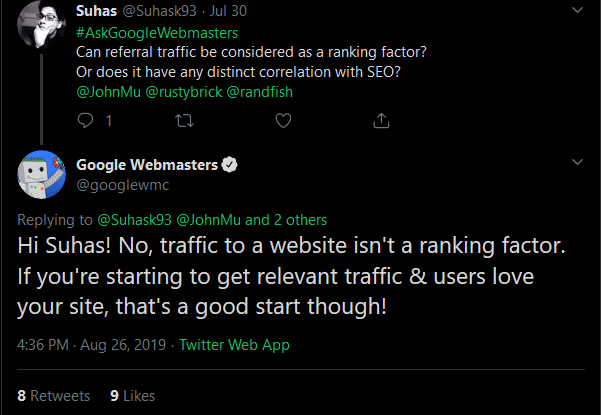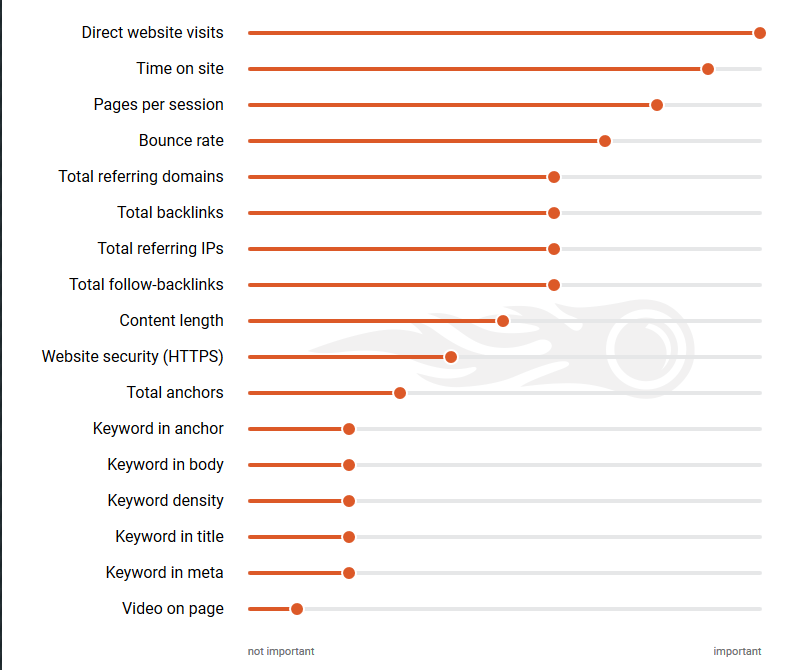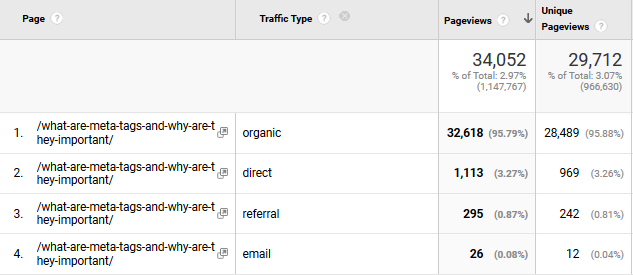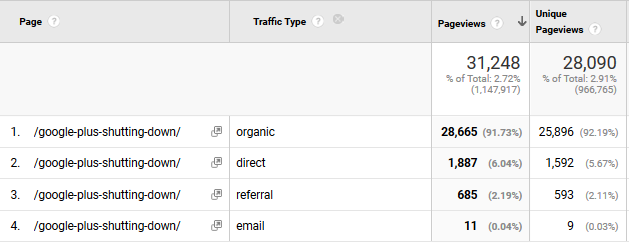Myth Busted: Site Traffic a Ranking Factor?
Site traffic being a ranking factor is what most SEO beginners and some intermediate SEOs believe to be true. I can’t blame them since I even believed it when I was just starting in SEO. But what’s the truth? Does site traffic not affect our site’s rankings as Google says? Or is there something deeper at play? Let’s find out.
Google’s Statement
In a recent post by Barry Schwartz, Google revealed in a Twitter thread that site traffic isn’t a ranking factor.

So site traffic isn’t a ranking factor as per Google. But here’s the thing: there’s a lot of data-driven studies in our industry that says otherwise.
Data-driven Studies
Studies from leading and reputable sources in the SEO industry point to one thing. There’s a certain correlation with having high direct traffic (most notable) to how high a site’s Google rankings are. There are also studies that show other types of traffic, most notably referral traffic, and it’s correlation with higher Google rankings. Here’s a snippet from the SEMrush study:

Do note that these studies about ranking factors were published at different times and some of them are not recent anymore. However, the data they showed still plays a role in determining how we should treat traffic value and its correlation with our site’s rankings. Nonetheless, here are some useful studies that can help you understand Google’s ranking factors:
- SEMRush’s Ranking Factors 2.0
- Backlinko’s Google’s 200 Ranking Factors: The Complete List (2019)
- CognitiveSEO’s research on how traffic affects SEO
SEO Hacker’s Data
Here’s the thing, I always take whatever Google says with a grain of salt. Some of them may be true, some of them may be more than meets the eye. So, I cross-referenced the correlation with having high-traffic with rankings using some of my more successful blog posts and here’s what I got:
The data for one of SEO Hacker’s best-performing articles, What are Meta Tags and why are they important? :

And here’s the number of keywords it ranks for (using Ahrefs):

A simple article about meta tags that has around 3
4k traffic for a year ranks for 1.3K keywords in a variety of countries. This specific article is ranking for 65 different keywords on the first page of Google SERPs. Here’s another high-performing article:

Here’s the keyword data:

This is a less-performing article than the first example but here’s the difference: With fewer backlinks, less referring domains, less traffic, this article ranks for more keywords than the first one while ranking for 75 keywords in the first page of Google SERPs. If you’re curious, this is an article I published when Google+ was shutting down.
What I think about Site Traffic as a Ranking Factor
So, why did I show you those two examples? It’s simple. I firmly believe that whatever your site’s traffic number is, it will always be just a consequential effect of your SEO efforts. Us SEOs and webmasters can’t directly affect the majority of our site’s traffic but our indirect actions can increase it over time.
The two examples above just goes to show that even if a page in your site garners a lot of traffic, it doesn’t mean that it’s going to be your best page in terms of rankings for different sets of keywords. What matters most is you, having the right content that satisfies the user’s intent. The difference between the two articles I used as examples is that the first one served as a more general overview of meta tags and why they were important for SEO. Meanwhile, the second example tackled the deeper implications of Google+’ shut down. So, for whoever searches for Google+’ shut down, the content I wrote can satisfy the user’s search for information about the particular event more than the first one.
Key Takeaway
SEO is a game of experimentation and finding what works best and what doesn’t. Don’t always focus on factors that could otherwise distract you from the real problem/solution. My advice is for you to take a step back, analyze the pain points of, not just your page, but also the users. Think about what they want to see if you were in their shoes and start to write about that. Traffic is an important benchmark on knowing if what you did works, but it’s not the endpoint of your SEO efforts. Increasing visibility also means that traffic is soon to come, so set your priorities straight and never stop experimenting. Any questions? Comment them down below!
